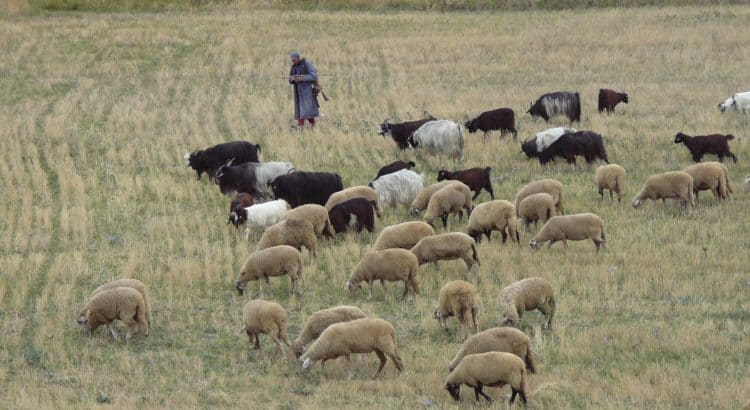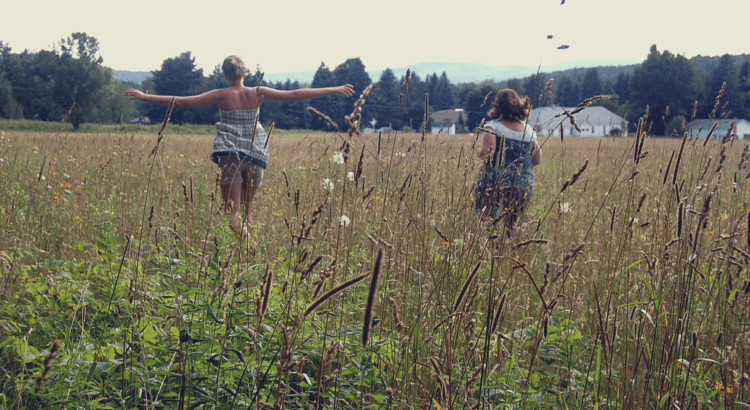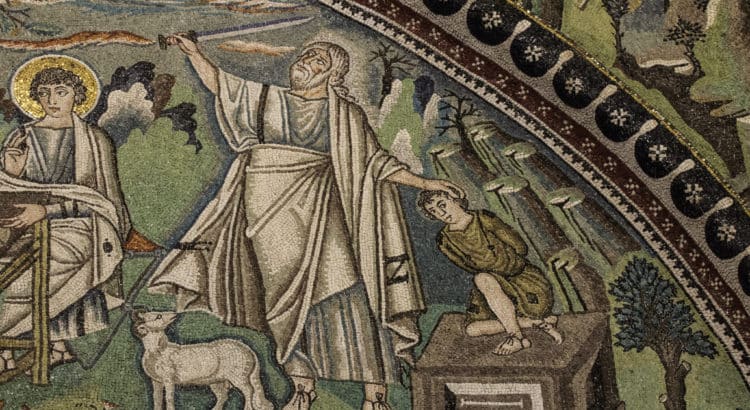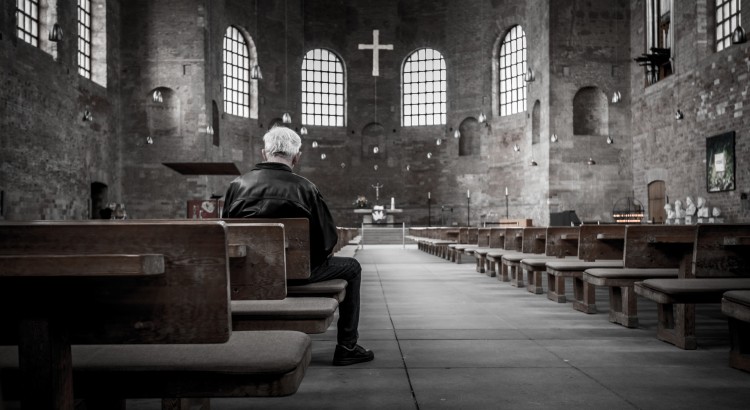Ezekiel 34:11-16, 20-24; Psalm 100; Ephesians 1:15-23; Matthew 25:31-46
**
I have a confession to make: there is much rejoicing in the Saylor-Oliver household on this, the final Sunday of Lectionary Year A. We’ve been talking for weeks about being ready for a break from the Gospel According to Matthew.
Matthew does not bring out the best in me. He’s concerned with details in ways that sometimes distract me from the big picture. He’s concerned with rules in ways that sometimes tempt me toward excluding those who fail to follow them.
And as we’ve been hearing for the past few weeks in these stark and demanding apocalyptic parables, Matthew isn’t afraid to sort of shove us into action, even using the threat of punishment as a prod.
We have, in this parable, the sheep on one side, and the goats on the other. The former come into God’s blessed inheritance, the latter, into eternal punishment. Note that neither group seems to understand the significance of how they’ve been sorted:
“Lord, when was it that we did you these kindnesses?” the sheep inquire. The Son of Man replies,“Just as you did for the least of these, you did for me.” It’s the same with the goats but the other way around.
It seems to matter greatly to this Son of Man how we treat the vulnerable.
Helping people meet their basic human needs—for food and shelter, for love and inclusion, for care and companionship—in the end, this is Matthew’s gospel vision for justice in the human family.
Of course, this vision is well in line with the streams of prophetic proclamation that sometimes trickle and sometimes surge through the pages of the Hebrew Scriptures. It’s fitting that Matthew’s final parable is paired today with the passage we heard from Ezekiel 34.
To really hear the similarity, it’s best if we back up to the beginning of the chapter:
Ah, you shepherds of Israel who have been feeding yourselves! Should not shepherds feed the sheep? You eat the fat, you clothe yourselves with the wool, you slaughter the fatlings; but you do not feed the sheep. You have not strengthened the weak, you have not healed the sick, you have not bound up the injured, you have not brought back the strayed, you have not sought the lost, but with force and harshness you have ruled them.
Again, in this passage, the challenge is for all who can, especially people in positions of power, to care for the vulnerable.
These readings couldn’t be clearer that the essence of just leadership is caring service. The appropriate use of power is to direct it toward the betterment of others, most especially those with the greatest need.
What’s more, Ezekiel, Matthew, and Jesus all agree that it is a violation of the first order not only to gratify oneself through the use of power but to do so at the expense of the vulnerable.
I found it impossible to hear these readings and not think immediately of our current cultural moment. It’s been dubbed by New York Magazine writer Rebecca Traister as The Reckoning. In newspaper investigations, on hashtags like #MeToo and also #ChurchToo, and in trusting private conversations, we are hearing the stories. Stories from women, children, and men who have been sexually harassed or assaulted by more powerful men, including in houses of worship.
Obviously, comparing these scripture passages to our contemporary situation can be problematic. The victims of these crimes are not passive objects or part of some nameless herd of animals. But that’s precisely why this abuse is so humiliating and so unjust: predators misuse their power and behave as if the people they abuse have no agency of their own.
**
Two pieces of Traister’s analysis seem to me to have particular theological importance. The first stems from her observation that the mere act of hearing these stories is not actually new.
She writes, “[W]hat we keep missing, as we talk and reveal and expose, is that this conversation cannot be just about personal revelation … or even just about the banal ubiquity of abuse; it must also address the reasons why we replay this scene, over and over again … [T]his is not a story simply of individual misconduct but of systemic inequity, a story of nuts-and-bolts infrastructure of gender injustice.”
The church has a word for this kind of injustice: structural sin. It’s embedded in our social systems, and we all contribute to it. To foster justice, structural sin must be met with structural repentance and transformation. A local example might be Safeguarding God’s People, the framework of policies and procedures the Episcopal Church has instituted to protect potential victims from misconduct and abuse.
Of course, our structural response must go deeper than that. It must become a part of each of our daily practices and concerns. We can’t wait until we see sexual harassment to teach and remind each other of behavior norms, and of the dignity and agency of all God’s people.
Men have a particular part to play in such a structural response, both in calling out other men and in examining the ways that each of us contributes through unawareness of our privilege. The resulting entitlement cannot help but shape the spaces we’re a part of.
Traister’s second point is particularly sobering. She writes, “You can feel the backlash brewing. All it will take is one particularly lame allegation … to turn the tide from deep umbrage on behalf of women to pity for the poor, bullied men. Or one false allegation could it.”
The history of social change suggests that she is right about inevitable backlash. And so does our Christian analysis of the human condition. It’s no coincidence that Paul and others write so often about needing to die unto sin. It feels a little bit like dying for any meaningful transformation to be accomplished in us.
Many conversations we will have in the coming months will be uncomfortable. A favorite artist or politician or journalist may be next to meet the consequences of their actions. A personal habit we thought was harmless or even complimentary may need to be abandoned and repented of.
This all may tempt some to wonder if the groundswell isn’t perhaps getting out of hand.
That’s when it’s helpful to have Matthew’s moral clarity. I don’t think he enjoyed dangling the threat of hell over the heads of the readers of his gospel of love and redemption. But the fact of the matter is that justice for all is the only foundation for human flourishing, the only worthy pursuit of we who are being redeemed in Christ.
That’s why Matthew wants to goad us into action. That’s why Ezekiel longs for a leader who will champion the vulnerable and hold the abusive accountable. That’s why Jesus came among us as one who serves, a King who emptied himself of glory and acclaim and used his power to empower others.
**
Sex and sexuality, the differences and similarities that draw us to each other, even desire itself: these are, at their core, the good gifts of a God who loves, and yes, desires us.
But without mature self-knowledge, the accountability of community, clear and well taught ethical norms, and the grace to live by our better angels, we will all be tempted to misuse and even abuse these gifts.
Thanks be to God, then, for the proclamation of scripture and the testament of the life of Christ: that we each have the power to die to sin, even structural sin, and live redeemed in the Spirit. We each have the power to empower the vulnerable, and to pursue true justice wherever it leads.
When that path gets scary or its destination unclear, remember this: ultimately, it leads to life.









